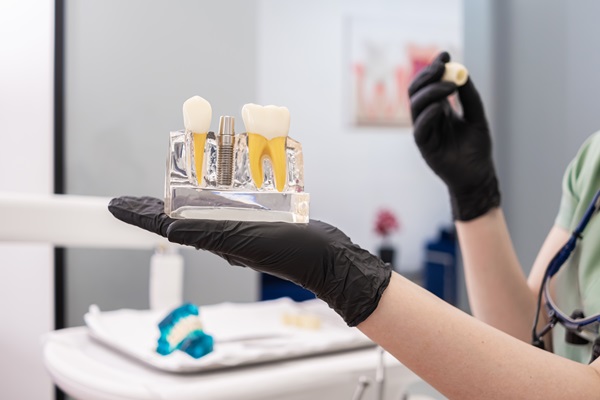Root Canal Therapy and Oral Surgery

Dentists recommend root canal therapy when decay, trauma or infection invades the tooth nerves. Root canal treatment is a viable attempt at saving a tooth that would otherwise be removed. Although many people think removing the tooth is the way out, tooth removal is almost always costlier in the end and may cause issues for the adjacent teeth.
The process is an Oral Surgery and entails removing the pulp, nerves, decay and bacteria from the interior layer of the teeth. A root canal requires incision and is usually performed under anesthesia – it is an invasive surgical procedure. Despite the widespread notion that the root canal procedure is debilitating, the process is straightforward with minimal pain.
Root canal therapy has a high success rate and should be a one-time treatment, although a tooth may undergo the procedure again if infection sets in. Usually, when the infection is too severe, or the fracture or cause of pain is not immediately visible through an x-ray scan, then a surgical root canal is advisable. The incision will be made on the gum to reach the canal from the side to remove the infected tissue safely.
This article focuses on root canal therapy as oral surgery and the steps involved in the procedure.
What does the procedure involve?
Usually, your dentist will refer you an endodontist (a root canal expert) or an oral surgeon. The procedure will be a collaboration between your general dentist and the specialists.
Before commencing the oral surgery, the dentist will administer anesthesia to numb the tooth. Then they'll place a rubber dam on the tooth to make the area dry and free from saliva. If there is any decay on the tooth’s or gum’s surface, it will be cleaned off. Afterward, depending on the nature of the problem, an incision will be made on the tooth crown or the gum to access the inner root chamber.
With dental tools, the dental specialist will pry into the opening to remove the nerve tissues, bacteria and the dead pulp material. After that, the area will be flushed with antibacterial agents to clean out the bacteria and tissue remnants. Once the tooth is clean, they will fill the space with a permanent filling material called gutta-percha. They will use a temporary filling if more appointments are necessary.
When you go for another appointment, the dentist will place a filling on the incision made on the top of the tooth. Generally, any tooth that undergoes root canal treatment will get a new crown. This will shield the tooth, avert breakage and help it function fully.
What to expect after root canal therapy
Following your treatment, the tooth may be sensitive due to normal tissue inflammation. It should stop when the swelling alleviates, and the tooth heals. You can use over-the-counter painkillers like ibuprofen (Motrin, Advil), or naproxen (Aleve) to manage the discomfort and sensitivity. Usually, patients would be able to resume their normal routine the following day.
In the first few days following the oral surgery, try to reduce chewing on the affected area until the tooth has fully healed. The dentist will guide you on the proper way to care for your tooth.
Request an appointment here: https://www.drjstearns.com or call Platte Valley Oral Surgery at (303) 997-0220 for an appointment in our Denver office.
Check out what others are saying about our dental services on Yelp: Oral Surgery in Denver, CO.
Recent Posts
Clinical studies show that the dental implant remains the gold standard of dental restorations. Implants can help bring back your smile and dental function. The right dental professional can perform the procedure without any issues. Here are the details on how an oral surgeon approaches a dental implant surgery.Choosing a dentist who has training and…
A missing tooth must get a tooth replacement as soon as possible. An untreated dental gap can contribute to many dental issues. That is why a dental replacement is important. Here are the details on how a tooth replacement can improve your smile.An oral surgeon understands how tooth loss can affect a patient. A tooth…
Learning what an oral surgeon does is a great idea. There are many different types of dental professionals in business, making it necessary to understand the differences between each type of professional. When it comes to oral surgeons, they tend to focus on correcting dental problems using one or more surgical processes.Consultation appointments with oral…
An oral pathology must receive immediate treatment. This can prevent more complications later on. Your oral surgeon can help correct any dental problem. Here are the details about each common oral pathology and its corresponding treatment.This oral pathology results from a bacterial infection because of plaque buildup. Symptoms of this condition include gum bleeding and…


